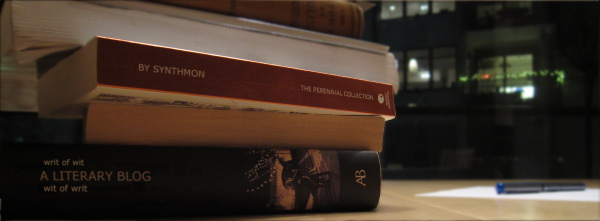The new year has not been all too kind to me; well, at least, it's not been more benevolent than its predecessor. Without going into details, suffice it to say that it is my own demeanour, more than anything else, that contributes to the rather bleak existence I've lead as of late.
Even so, however, I'm not seeking another cause at the moment. Despite vowing to myself to properly write in a decent pace, that promise has not been fulfilled. Save a few scraps of text that I have been polishing, and a collection of minor articles published on Wikipedia, there has been little in that manner lately. Likewise, my studies suffer.
Throughout January, I left this channel open, without deciding either to keep up with it or to put it to rest. I had come to the realization that I had pitifully little to say, and what I did speak of was things that I had not properly considered myself, and were little more than the elaborate ramblings of a child. However, I did not wish to truly let it go, as it had given me some temporary freedom of mind. In the end, I realized that little has been gained from the furtive activity, and decided to finally close this chapter.
It is as such with this post that I will no longer, most likely, write in this manner for some time. To write of writing, with neither experience or attention to the writing itself, is a puny exercise in repetition and emptiness. Not only that, there are many more blogs of a similar purpose that far outweigh, in both success and content, my attempt.
Yet I am a far too vague person to ever remove what has been written. The entire project will remain here and the links will probably continue to exist in conjunction with other contexts. It is, however, closed, and there will be no further posts.
